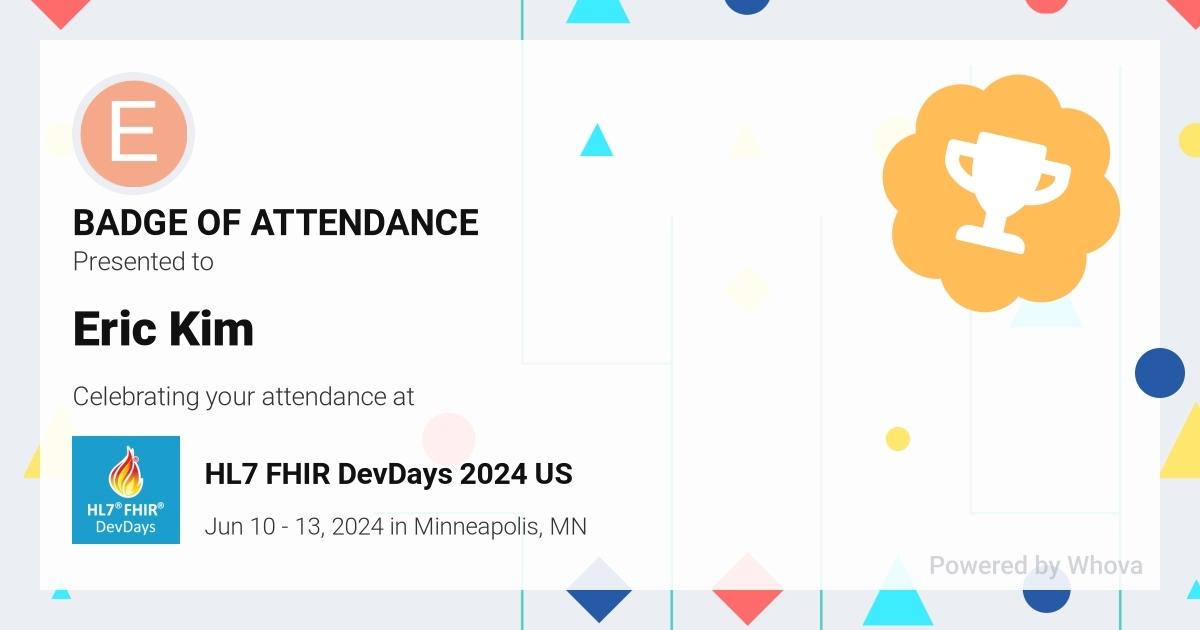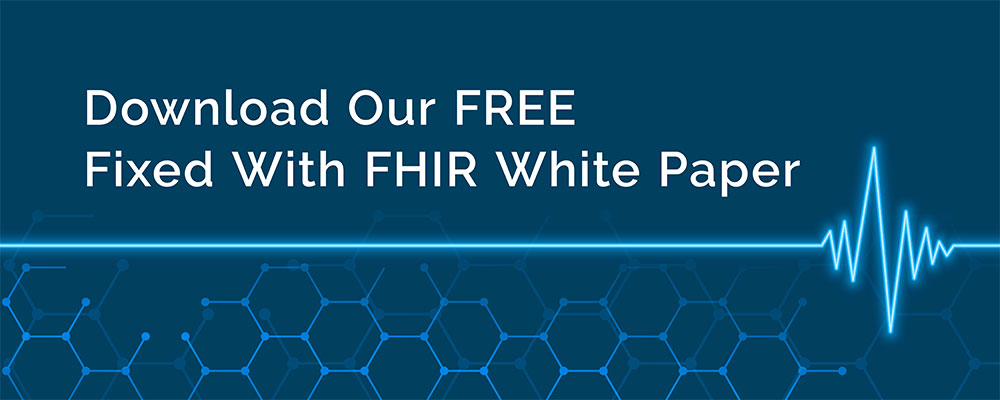This is part two of our three-part series as our Research and Develop team discusses their experiences at the DevDays 2024 Conference held in Minneapolis, MN, last weekend! Next up is Eric Kim, Software Engineer, and his takeaways from a fantastic event:
I enjoyed a myriad of things from my DevDays experience, the most obvious being the diverse amount of informative talks and sessions catered towards every aspect of FHIR and then some! I greatly appreciated that all four event days were meticulously organized on the Whova app, with nearly every talk conveniently uploading their lecture slides for future reference. Additionally, all fellow attendees were cordial and enthusiastic to talk about FHIR, with many new conversations sparked simply by sitting at the same table.
The most interesting session that stood out to me was the “Plenary Panel: AI Opportunities for Patients” talk hosted by Microsoft Chief Architect Josh Mandel. Straying from the typical slideshow-style presentations, this plenary panel showcased a live discussion from four different professional perspectives on using AI, specifically Large Language Models (LLMs), to make educated judgements on your own healthcare diagnoses. The goal of this panel was to answer the question: what practical benefit can AI provide in the healthcare industry?
What made this talk particularly thought-provoking was that the speakers actually presented distinct—sometimes even contrasting—outlooks and did not come with a hive mind of similar opinions. All the speakers were clearly informed in their respective fields and offered convincing arguments on what the ever-expanding collaboration of AI and healthcare has to offer patients. The main takeaway was that AI could prove to be a constructive supplement to analyzing health results with your doctor, and typically in a manner that is more comprehensible for patients with limited health knowledge.
I had the most fun in the sessions presented by Microsoft Principal Software Engineer Gino Canessa and Medblocks CEO Sidharth Ramesh, both of whom had extraordinary presentations and personalities. It never hurts for a presenter to show enthusiasm in their talks, and Gino and Sidharth had me thoroughly engaged in their slideshows from beginning to end. Admittedly, personal bias does come into play, as both have helped me in my career with their own FHIR-centric YouTube videos, so it was a great pleasure to actually meet them in person.
I attended multiple talks hosted by Gino, who covered areas of particular personal interest, such as the logistics of FHIR subscriptions and Implementation Guide code generation using C#. As a software engineer who works with these same tools and concepts in client work and general development, I found these sessions very insightful in understanding the intricacies of IG OSS tooling and developing better asynchronous coding practices. Although his talks were mainly just reviews of familiar topics, Gino’s enthusiastic energy kept me so engrossed.
On the other hand, I only attended one full session by Sidharth, but it was nonetheless a very captivating presentation on unstructured data capture using FHIR vs. openEHR. The talk started with his own origins as a PhD student in an Indian insurance company and his struggles with manually processing patient documents over the course of many hours. To minimize this tediousness, he sought to formulate a way to organize and store all this information more efficiently and programmatic. However, this came with the inevitable question: how exactly do you coherently and accurately capture unstructured document data? Furthermore, how do you properly encapsulate this data in a strictly defined standard like FHIR? This presentation particularly intrigued me because this is a very relatable conflict that I have personally faced and inquired about in my career, so it was great to get Sidharth’s professional take on the matter.
HL7®, FHIR® and the flame design mark are the registered trademarks of Health Level Seven International and are used with permission. Use of the FHIR trademark does not constitute endorsement of this association or its actions by HL7.
GigaTECH Specializes In FHIR Applications
We specialize in working with FHIR and SMART on FHIR applications, creating functional, concise, and easy-to-use applications to accomplish tasks as small as triaging service tickets for customers all the way to importing bulk FHIR data from insurance databases for use by hospitals and clinicians as they seek a holistic view of integrated health information to support clinical decisions.



